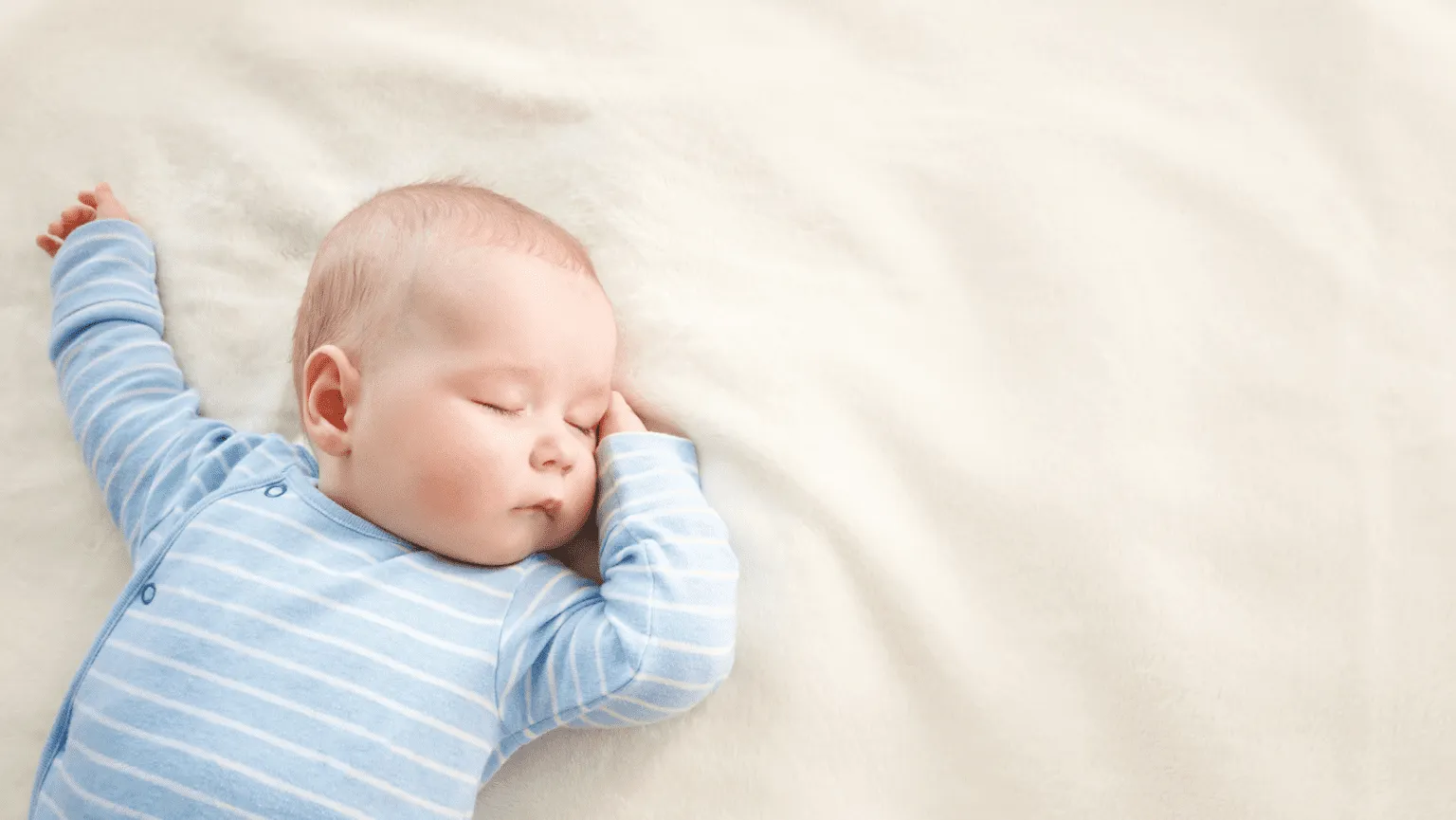The 6 Simple Changes To Improve Your Baby’s Sleep… Instantly!
By Joe Kiefer, Pediatric Physical Therapist, Co-Owner Developmental Steps
New parents make a few mistakes (Don’t worry I was one of them) that can make it difficult for a newborn to fall asleep or stay asleep. Many parents don’t realize they are making a mistake. They’re following advice from their friends or parents, which is based on outdated information or Old Wives Tales. The baby’s sleep will change overnight once the parent realizes what they are doing wrong and stops making them. This article will discuss the most common sleep problems I see in newborns here at the clinic. What can you do to avoid making these mistakes?
Identify When Your Baby is Getting Tired
The first mistake that new parents make is not paying attention to their baby’s tired cues or signs. All newborns will show tired signs after only being awake for a short time. One of the first signs is that they are losing interest in you and their toys. They either start to become very jerky in their movements or still, quiet, and sluggish. They may become anxious. They may start to yawn and rub their eyes or pull at their face. Now, as soon as you see your baby’s unique tired signs, you want to start putting them to bed because what you want to do at all costs is avoid an overtired baby.
If you don’t notice those tired signs, your baby will move into the overtired stage. This means that you will spend hours with a fussy, crying baby who is difficult to get to sleep. Your baby’s body will release the stimulating hormones adrenaline and cortisol as soon as they become too tired. These hormones are like the ones you use when you are in fight or flight mode. As you can see, if a baby is stressed out, it will be difficult for them to fall asleep. And then when they’re asleep, they are going to rouse and wake up a lot more than they would if you put them to bed as soon as you see their tired signs. You should be alert for signs of tiredness and get your baby ready to go.
How Long Should My Baby Be Awake and Sleeping?
New parents often don’t know how long their baby should be awake between naps. This causes them to keep their baby awake for too long, which can lead to a fussy baby, who will be difficult to soothe, put to sleep, and stay asleep.
A baby four months old and younger will need to take a break after being awake for between 45 to 120 minutes. If your baby has taken a long nap (for example, for several hours), they may be able to remain awake for 120 minutes. If they have only taken a 45-minute nap, they may be able to stay awake for another 45 minutes. We know that babies aged under 4 months need to sleep between 45 and 120 minutes at a clip. You can now start to watch for signs of tiredness in your baby. You can then put your baby to sleep as soon as they are visible.
So once your baby awakes from their nap… Make sure you look at the time and track the next 45-120 minutes for signs of tiredness. We also recommend getting a wristwatch or track with your phone.
Myth: But If They Stay Up Longer… They Will Sleep Better At Night
A lot of parents make this mistake, and it is based on misinformation. They keep their baby awake longer during the day to ensure they have better sleep at night. Parents are often told by their baby’s parents that they will sleep better at night if they have fewer naps during the day. “That baby sleeps a lot, no wonder they are up all night”. For babies under 4 months old, this is not true. You are making your baby more tired by restricting their naps during the day. They will find it more difficult to fall asleep at night and they will wake up more often if they have regular naps throughout the day. Babies under four months old will take naps on their own and may take up to five naps per day. You don’t need to set a schedule for your baby’s sleep. Yet, letting them rest as much as they need throughout the day will help make their nighttime sleeps easier and last longer.
Remove Distractions for Better Sleep
The fourth mistake that I see new parents make is to make their bedroom and sleeping environment too distracting. They want the environment to feel warm and welcoming for their baby. It can be too distracting for little ones and keep them awake at night. Babies are often very curious and can get overwhelmed when they see things for the first time. It’s no surprise that baby mobiles, wall art, nightlights, and music in the room can distract them and prevent them from falling asleep. You want your baby to sleep in a darkened room. You want the room to be dark enough so that it is difficult for you to read a book. This will ensure that your child is not distracted by things in the room when they wake up during sleep cycles.
You also want to ensure that your baby’s bedroom is quiet. Now, I know it’s ridiculous to assume that you will be able to stay quiet the whole time your baby’s napping. This is a mistake. You should look into a white noise machine. A white noise machine emits a constant, radio static or waterfall sound. This blocks out all noise in the house, so your baby won’t wake up from sudden loud noises. If they do awaken, it will not be because they hear you in the kitchen, on the TV, or talking to someone else. It will ensure your baby goes back to sleep if they awaken between sleep cycles.
Let Sleeping Babies, Lie
I often see parents picking up their babies too early, this is the fifth most common mistake. Newborns can be very noisy sleepers. They spend most of their time in REM, which is the sleep that is full of movement because their body doesn’t go into paralysis as we do as adults. They make a lot of noise when they are in REM sleep.
Another thing to remember is that babies and all humans go through sleep cycles when they sleep. You will be able to wake up for a short time, but you’ll go back to sleep if you’re tired, not hungry, or uncomfortable. The same goes for babies. If your baby is screaming, grunting, or crying, you should wait. They might be in REM sleep or may be waking up between cycles. If you leave them alone, they’ll go back to sleep and remain asleep. If you hurry in to pick them up, they will be awakened. They will be cranky, fussy, and want to go back to bed again.
When You Want Them To Sleep, Doesn’t Mean They, Will
Parents trying to get their babies to sleep earlier so that they can have a little “me time”. I get it that caring for a newborn baby is very taxing or at least it can be. Yet, trying to get a baby to bed early is the most common mistake that we see. Now, unfortunately, before three months of age, babies have a late bedtime. Now, when I’m meaning late, it is late. It’s around 10 or 11 o’clock at night. And the bedtime can be erratic. So it changes from night to night. After three months of age, you will notice that their bedtime starts to creep forward and it becomes more consistent. But before then, you’re going to have to go with the flow and let your baby do the guiding. They will send cues when they are ready for bed. Because if you try for that early bedtime, your baby may wake up from what they think was a nap.
So that is it! Follow these simple tips and your baby will be sleeping… well… like a baby!






